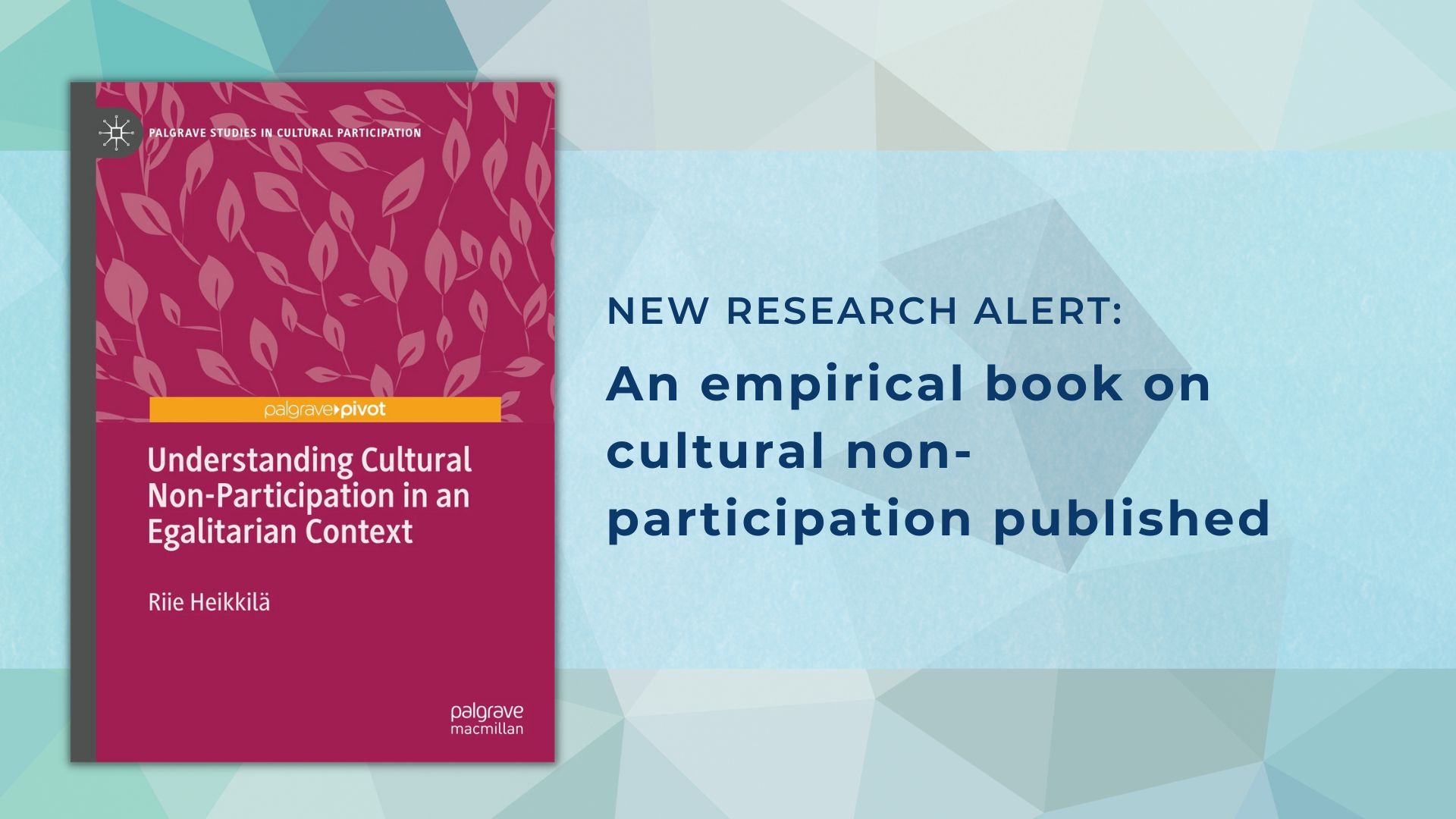A new book “Understanding Cultural Non-Participation in an Egalitarian Context” by INVENT team member Riie Heikkilä has been published in the Palgrave Studies in Cultural Studies series. The book uses qualitative data from individual interviews and focus groups collected and explores the questions of cultural non-participation in Finland.
The point of departure for the book is the much-studied relationship between cultural participation and high social status. Typically, not participating in culture has been seen as a problem in mainstream cultural sociology, and most of the empirical research deals with middle or upper-class participation. Here, the data used is collected from people with a background that typically predicts low cultural participation, for example, having low education, living in small towns, and being outside of the labor markets.
The book reveals that above all, cultural non-participation is a methodological artifact that exists because the majority of the research studying cultural participation focuses on highbrow-oriented participation, while other forms of participation are not inquired or covered as widely or at all. The findings show that none of the study participants was completely “passive”. However, the more informal and social participation does not often compensate for the lack of highbrow-oriented cultural participation, as sometimes suggested in the literature. There is polarization also in the participation outside of traditional highbrow cultural participation: some people participate actively in different forms of culture, while some participate only in everyday activities and even have a hostile attitude towards other forms of participation.
The study identifies three discourses on how study participants talk about cultural non-participation in Finland: ‘affirmation’, ‘functionality’, and ‘resistance’, which all differ from each other. In other words, the egalitarian context of Finland produces highly differentiated milieus and accounts of cultural participation and shows that a certain equality of opportunities does not translate into equal participation patterns, quite on the contrary. In this way, the book enters into dialogue with INVENT’s research objectives of inclusiveness, tolerance and social cohesion.
The book is available open access at https://link.springer.com/book/10.1007/978-3-031-18865-7



 This project has received funding from the European Union’s Horizon 2020 research and innovation programme under grant agreement No
This project has received funding from the European Union’s Horizon 2020 research and innovation programme under grant agreement No
Leave A Comment